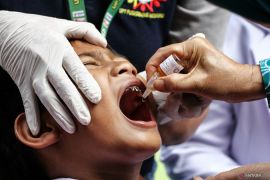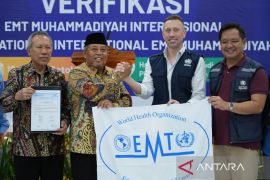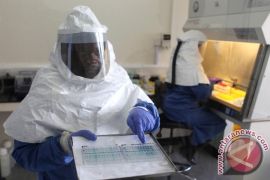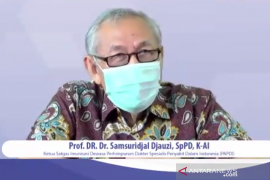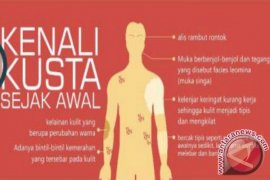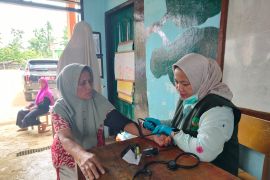"Through GISRS, we will obtain information on lab-based epidemiology and virology on influenza as well as COVID-19 for (uses like) early detection and response in order to support the national disease prevention and control program," Director of Communicable Disease Prevention and Control at the Health Ministry Imran Pambudi stated.
The WHO has set GISRS as one of the platforms to conduct surveillance on influenza and COVID-19 transmission, Pambudi remarked in a statement received here on Thursday.
To monitor the dynamics in non-influenza COVID-19 cases, Indonesia has followed WHO's guidelines by adopting Influenza Like Illness (ILI)-Severe Acute Respiratory Infection (SARI) surveillance that was listed as part of GISRS, he explained.
ILI-SARI surveillance aims to provide authorities in the health sector with useful information that can be used to formulate proper plans or measures to prevent and control diseases, be it is through intervention, medical resources' management, or making recommendations about a case.
Pambudi stated that the ILI-SARI surveillance is used to determine a case of respiratory system issue by taking into account the exhibited symptoms.
The ILI surveillance parameters for inpatients include fever that exceeded 38 degrees Celsius and persistent cough for less than 10 days.
The SARI surveillance parameters for inpatients are history of fever, including instances when the body temperature crossed 38 degrees Celsius, and persistent cough for less than 10 days.
"ILI and SARI cases' test specimens are from nose and throat swabs to be sent to sentinel laboratories and then checked after which they are sent to National Referral Laboratory Prof. Dr Sri Oemijati before (eventually being) reported to GISRS," he elaborated.
ILI surveillance is conducted at 31 public health centers across 27 provinces, and SARI surveillance is carried out at 14 hospitals across 10 provinces while the hospitals in question are part of the GISRS network.
Pambudi expects all stakeholders to commit to improving their performance in conducting high-quality surveillance in a bid to address the influenza pandemic through prevention and control.
Related news: Risk of avian influenza infection in humans still low: govt
Related news: No WHO directive yet on treating COVID like ordinary flu: ministry
Related news: Indonesians over 60 prioritized to receive influenza vaccination
Translator: Andi Firdaus, Mecca Yumna
Editor: Sri Haryati
Copyright © ANTARA 2023

